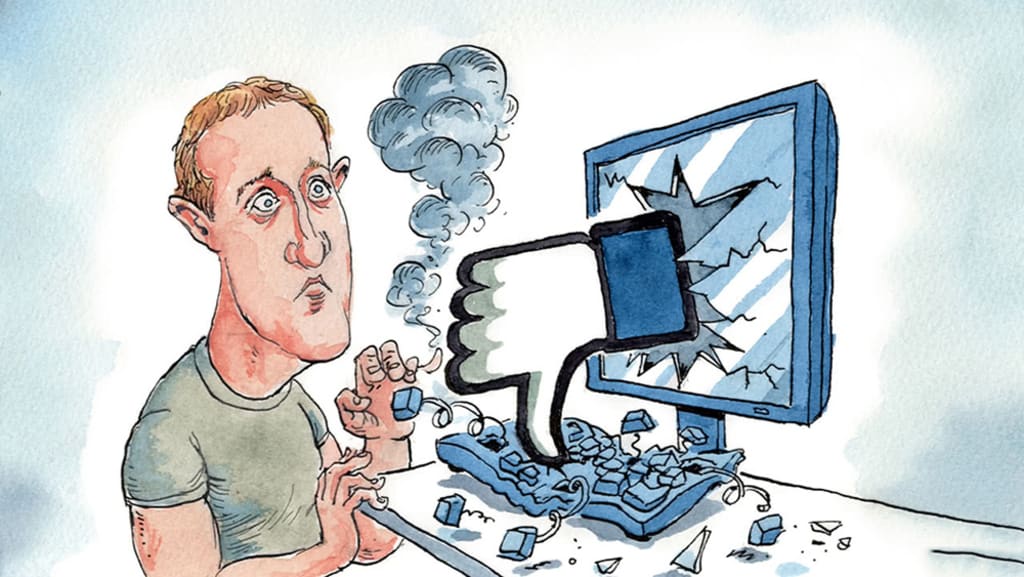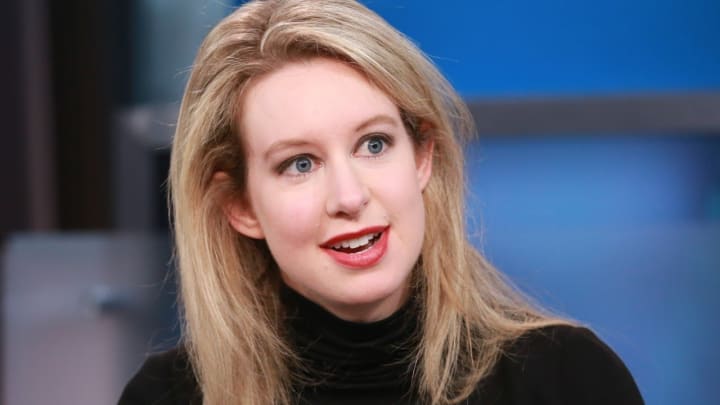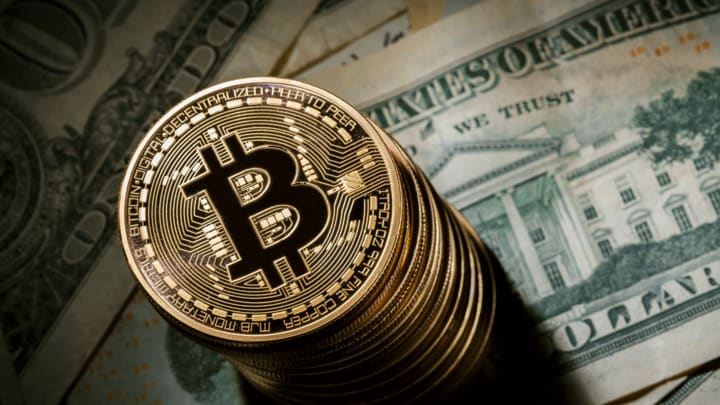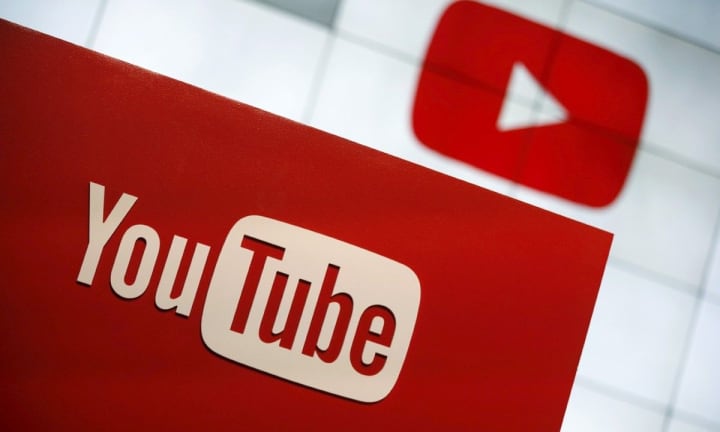The 10 Biggest Tech Scandals of 2018
From Twitter's silence about white supremacy to the election hacks, here are the biggest tech scandals of 2018.

The year 2018 has not been a good year for many tech companies and many tech-related organizations. Due to the harsh political climate and the fact that media has been exposing serious transgressions made by company CEOs, the year has been marked by having scandal after scandal hit the tech world.
Whether it's due to a CEO's meltdown or due to some seriously ugly behavior on behalf of others, the tech scandals of 2018 seem to be more shocking than any year prior.
This is doubly true when you take a look at the headlines of this year's worst scandals. Do you remember the shockwaves that these major gaffes caused?
Not many companies can be as intrusive as Facebook, and sadly, this caused one of the biggest tech scandals of 2018.
In 2017, it became clear that the social media giant had worked with Cambridge Analytica to help effect the outcome of the 2016 presidential election. As people began to probe deeper into Facebook, the amount of data they harvested and sold was astonishing.
People are still continuing to uncover how many transgressions Facebook has committed—and are just beginning to realize how much propaganda the company pushed in recent years. It launched the #DeleteFacebook movement and cost the company millions of dollars.
The scandal eventually pushed CEO Mark Zuckerberg to apologize and also place some (very small) preventative measures against the proliferation of fake news. To date, it's considered to be one of the biggest corporate betrayals in history.
Theranos's Fraud Charges

Most medical people might not recognize this name, but at one point, Theranos was a medical tech company worth over $9 billion. The Silicon Valley darling was meant to revolutionize blood testing and make major breakthroughs in science.
It was going great until the founder, Elizabeth Holmes, was charged with fraud. Everything about the company was a lie, and it had defrauded investors out of millions.
Theranos didn't make any technology of its own, nor did it make new software—nor did it even hire people who knew much about medical testing at all.
It was revealed that the company's proprietary testing procedures only performed 12, of 200 tests it claimed to do, correctly. The med-tech world was rocked. Theranos folded almost entirely overnight.
With the American political scene becoming increasingly volatile, it's not surprising that many tech companies have started to see users as tech giants to crack down on hate speech. One of the largest companies to be approached by users on this matter is Twitter.
After being pinpointed as one of the most commonly-used platforms for white supremacists, people began to call on Twitter to block hate speech more effectively. Twitter stayed silent—and inadvertently sparked one of the biggest tech scandals of 2018.
People took note, and so did the media. Twitter moved to delete some users, particularly those that were noted to be Russian bots, but still has yet to aggressively implement measures against hate speech.
China's Faulty DPT Shots

One of the largest tech scandals of 2018 hasn't actually made much news in the United States—but it is absolutely annihilating China's med-tech sphere right now. China's largest medical technology company, Changchun Changsheng, sold over 250,000 faulty DPT vaccines that were used by children under the age of three.
When the scandal broke out, users took to social media to spread awareness. Children exposed to the low-quality vaccines have a higher risk of getting Diptheria, Pertussis (Whooping Cough), and Tetanus.
China has been vying to try to make a name of itself as a pharmaceutical powerhouse on the international circuit. Unfortunately, the scandal may have just wrecked the country's reputation abroad.
Uber is the new taxi service, if you ask most Millennials and Gen Z people. The service, which runs off an app that allows you to turn your car into a taxi service—and find other drivers to give you a ride when you lack a car.
The company has gained spectacular growth in recent years, with many people marveling at Uber's ability to gain city after city's business. However, there was a dark side to the taxi app that most people weren't aware of.
It seems like bad behavior in the boardroom went unabated. One such event shocked the world, when a private dinner meeting culminated in one employee offering to find damaging facts about critics. The employee was forced to apologize, but wasn't fired.
It was later revealed that Uber is facing multiple discrimination filings for the way HR was talking about women and minorities. The company faced boycotts and many resignations from angry drivers.
As of late, Uber has been working hard to brush this under the rug. Can you really brush off one of the biggest tech scandals of 2018 like nothing happened though?
Bitcoin's Role in Russian Hacking

By 2017, it became clear that Russia meddled in the United States presidential election. In fact, it was even openly admitted on Russian news stations. However, that's not where the scandal ends. Rather, it's only the beginning.
For Bitcoin investors, one of the biggest tech scandals of 2018 was the role that cryptocurrency played in Russia's hacking attack. The FBI showed how Russian hackers used Bitcoin and the Dark Web to steal identities, pay for hacking services, and even pay for the server that hosted Wikileaks.
The use of Bitcoin to hack the election became a major news headline for both investors and political analysts. This scandal is still unfolding, so it's uncertain where it will end—all we do know is that playing Russian Roulette with the Trump administration is costing us hugely as a country.
It's no secret that the FCC decided to repeal Net Neutrality, despite the massive public and private outcry that ensued. During the time that the FCC was "open to hearing opinions," the state-run organization had a multitude of anti-Net Neutrality comments show up on its site.
At one point, the FCC's website stopped taking comments. Originally, Ajit Pai and his bunch of cronies claimed that the FCC was hacked and that they had somehow received overwhelming support for the extremely corrupt legislation.
Fairly recently, the FCC openly admitted that their site wasn't hacked. Rather, they had unilaterally decided to pass the legislation regardless of what the people wanted. The scandal is continuing to billow, with millions of Americans calling for the indictment of Ajit Pai.
LocationSmart's Shady Tracking

The Cambridge Analytica scandal of 2016 and 2017 was pretty bad, wasn't it? As bad as it was, there's something to be said about companies that took the snooping to a new level.
A recent news article pointed out that a company called Securus Technologies has been tracking peoples' location in real-time using cellphone data. The data is channeled through a program called LocationSmart.
You can't opt out, and your data is being sold to sketchy companies that want to advertise to you. What's more terrifying about this issue is that it's not just companies that are using this tech. Sheriffs have also been caught using this tracking software to keep an eye on others without a warrant.
It's become increasingly evident that the 2016 election was hacked by outside sources—and that leads us to yet another one of the biggest tech scandals of 2018.
People assumed that electronic voting machines that were hacked by master hackers with supergenius IQs. The truth, as it appeared, was pretty embarrassing. Recently, an 11-year-old was able to hack the Florida voting machines and change votes.
Tampering evidence continues to pile up. Oddly enough, the GOP does not seem to want to fund protection against outside hacking efforts despite the evidence of tampering.
YouTube's Many Ad Scandals

YouTube has made a point of showing that it'll do a lot for sweet, sweet advertiser money. Unfortunately, that included turning a blind eye to hate speech—repeatedly, often to the point that various groups have had to call out the video giant on allowing videos that incite violence on its platform.
Sadly, it seems like YouTube continues to be okay with giving accounts that promote hate speech money for their content. This has become so common, it's considered to be part of YouTube's current reputation.
However, after increasingly heavy pressure from users, YouTube recently banned hate speech artist Alex Jones and his Infowars channel. Is this the beginning of a better YouTube? Not likely. They seem to be cowering after unleashing one of the uglier tech scandals of 2018.
About the Creator
Rowan Marley
Rowan Marley is a 20-year-old sports enthusiast who hails from Brooklyn. When he's not hitting up a local Zumba class, he's drinking organic smoothies. That's just how he rolls.






Comments
There are no comments for this story
Be the first to respond and start the conversation.